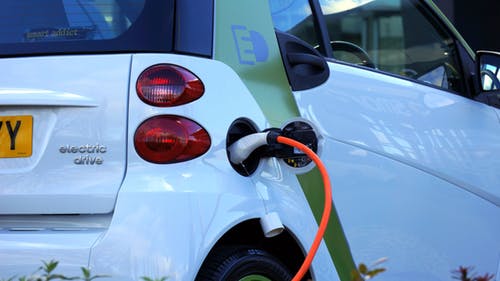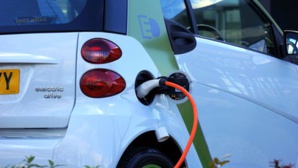During the last week’s meeting held at Brazil, auto-executives like General Motors as well as Toyota stressed that the South American auto market is “likely to resist a broader global move towards electric vehicles for years to come” given its protected “auto market” and its sources for traditional fuel like “ethanol, natural gas and diesel”.
At present, the global auto manufacturing sector is focussed on the shift towards EVs whether in Europe, Asia or North America. But the executive overseeing production in Argentina and Brazil still prioritise “internal combustion engines” partly due to the local subsidies on “plentiful fuels”. The Fiat Chrysler Automobiles’ Argentina Head, Cristiano Rattazzi said:
“The future of Argentina’s energy is natural gas”.
And he also added further saying that even though diesel has fallen out of favour in most part of the world, in Argentina it still holds a potential market. Vaca Muerta is among the “largest shale gas reserves” on the world found in Argentina, which is attracting a dramatic increase in “foreign oil companies and state-owned YPF” investments. As a result, Argentina is going to see more of natural gas production.
The Auto Trade Group’s Executive Director in Brazil had similar views about ethanol, the pow source of many cars in Brazil. He said:
“It’s very important that the government supports investments in research and development involving ethanol. We need to maintain what we already have here.”
According to Reuters, the political sway of the “local energy producers” reflects in their choice of sticking to “what they know”. In fact, Brazil has recently announced “a series of tax incentives” offering “significant benefits” to auto manufacturers for choosing to “invest in ethanol research”.
The meeting event was held in Sao Bernardo do Campo, which also happens to be the “historic home” for auto-industry in Brazil, although still recovering from the shock of Ford Motor Co plant’s possible shut down in the city which came earlier in the year.
On the other hand, till now, Toyota Motor Corp seems to be the only one make an announcement for a “hybrid model in South America” which will feature an engine capable of using electricity as well as “pure ethanol or gasoline”. In the words of Toyota’s vice-president Brazil, Celso Simomura:
“It’s the best solution for our region”.
Earlier, last month, General Motors Co revealed that it is likely to invest around “10 billion reais”, equivalent to “£1.95 billion”, in Brazil over a span of the coming five years; although the said investment will not be for electric vehicles, explained the South American chief for GM, Carlos Zarlenga.
However, Zarlenga further added that GM will be importing EVs this year for testing the Brazilian market and the company has not made any plans yet to manufacture them locally. The Caribbean and South American top executive for Volkswagen AG, Pablo Di Si, informed that the company plans on importing “six electric or hybrid models to Brazil by 2023” and like Zarlenga, he too confirmed that the German car manufacturer has “no plans to produce them locally”.
In Di Si’s words:
“In Latin America, we need to consider all the caveats”.
Di Si cited the “lack of a legal framework” for EVs as well as the insufficient “charging infrastructure”, the reason behind the lack of initiative in EVs, while Volkswagen has an aim of selling “1 million electric vehicles globally by 2025”. Moreover, Rattazzi from Fiat thinks with confident that in medium terms South America is going to be ruled by old ways. As per his prediction:
“In 2030, the combustion engine will still have a place.”
References:
reuters.com
At present, the global auto manufacturing sector is focussed on the shift towards EVs whether in Europe, Asia or North America. But the executive overseeing production in Argentina and Brazil still prioritise “internal combustion engines” partly due to the local subsidies on “plentiful fuels”. The Fiat Chrysler Automobiles’ Argentina Head, Cristiano Rattazzi said:
“The future of Argentina’s energy is natural gas”.
And he also added further saying that even though diesel has fallen out of favour in most part of the world, in Argentina it still holds a potential market. Vaca Muerta is among the “largest shale gas reserves” on the world found in Argentina, which is attracting a dramatic increase in “foreign oil companies and state-owned YPF” investments. As a result, Argentina is going to see more of natural gas production.
The Auto Trade Group’s Executive Director in Brazil had similar views about ethanol, the pow source of many cars in Brazil. He said:
“It’s very important that the government supports investments in research and development involving ethanol. We need to maintain what we already have here.”
According to Reuters, the political sway of the “local energy producers” reflects in their choice of sticking to “what they know”. In fact, Brazil has recently announced “a series of tax incentives” offering “significant benefits” to auto manufacturers for choosing to “invest in ethanol research”.
The meeting event was held in Sao Bernardo do Campo, which also happens to be the “historic home” for auto-industry in Brazil, although still recovering from the shock of Ford Motor Co plant’s possible shut down in the city which came earlier in the year.
On the other hand, till now, Toyota Motor Corp seems to be the only one make an announcement for a “hybrid model in South America” which will feature an engine capable of using electricity as well as “pure ethanol or gasoline”. In the words of Toyota’s vice-president Brazil, Celso Simomura:
“It’s the best solution for our region”.
Earlier, last month, General Motors Co revealed that it is likely to invest around “10 billion reais”, equivalent to “£1.95 billion”, in Brazil over a span of the coming five years; although the said investment will not be for electric vehicles, explained the South American chief for GM, Carlos Zarlenga.
However, Zarlenga further added that GM will be importing EVs this year for testing the Brazilian market and the company has not made any plans yet to manufacture them locally. The Caribbean and South American top executive for Volkswagen AG, Pablo Di Si, informed that the company plans on importing “six electric or hybrid models to Brazil by 2023” and like Zarlenga, he too confirmed that the German car manufacturer has “no plans to produce them locally”.
In Di Si’s words:
“In Latin America, we need to consider all the caveats”.
Di Si cited the “lack of a legal framework” for EVs as well as the insufficient “charging infrastructure”, the reason behind the lack of initiative in EVs, while Volkswagen has an aim of selling “1 million electric vehicles globally by 2025”. Moreover, Rattazzi from Fiat thinks with confident that in medium terms South America is going to be ruled by old ways. As per his prediction:
“In 2030, the combustion engine will still have a place.”
References:
reuters.com






